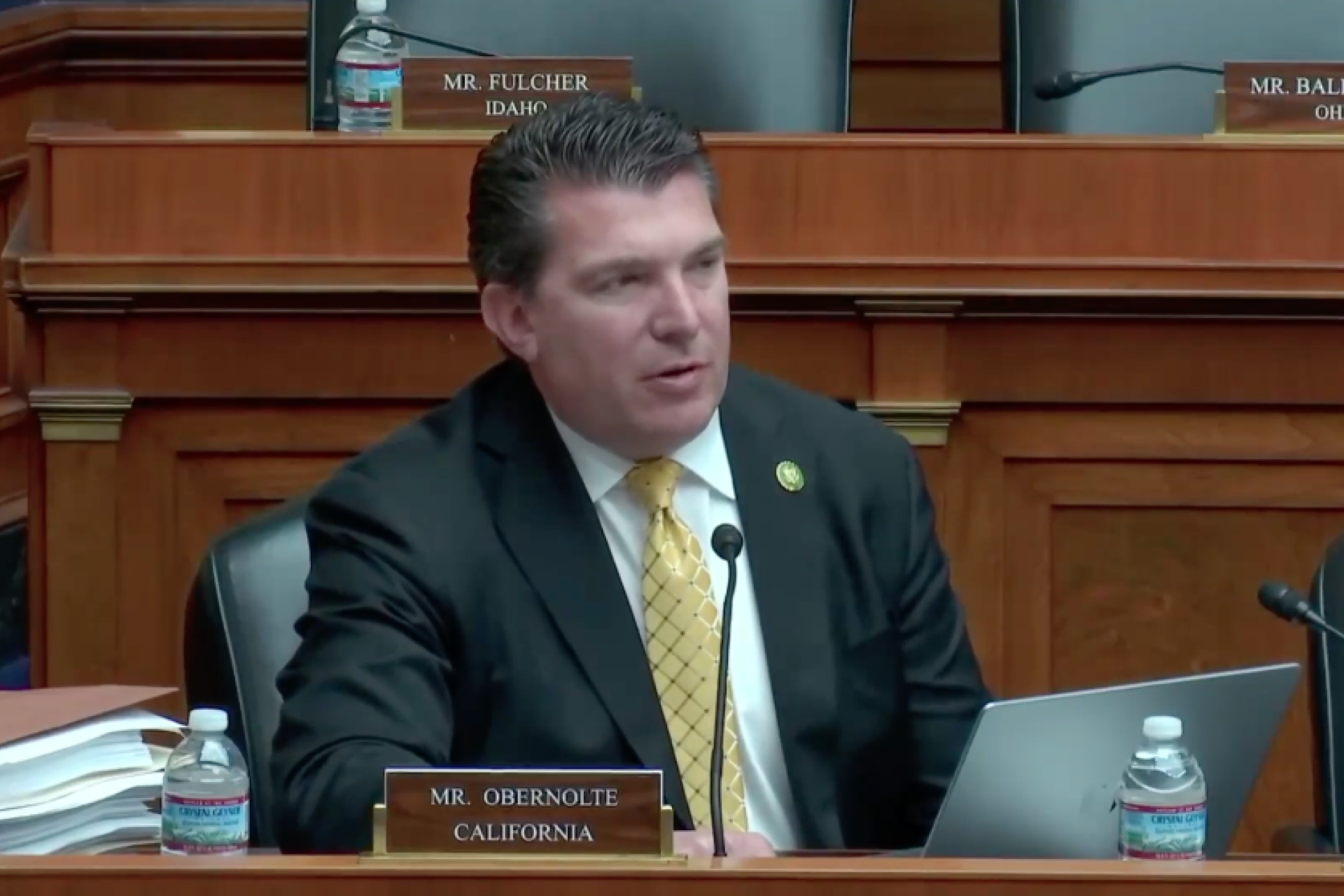Rep. Obernolte Leads Colleagues in Opposition to the EPA Approving California’s In-Use Locomotive Regulation

WASHINGTON – U.S. Congressman Jay Obernolte (CA-23) led 73 of his colleagues in a letter opposing the Environmental Protection Agency (EPA) granting a waiver to the California Air Resources Board (CARB) for its regulation requiring zero-emission locomotives. If the EPA were to grant this waiver, it would have harmful ramifications across the country and on jobs in California’s 23rd Congressional District, as well as counterproductively increasing greenhouse gas emissions rather than decreasing them. On Wednesday, EPA Administrator Michael Regan appeared before the House Energy and Commerce Environment, Manufacturing and Critical Minerals Subcommittee and Rep. Obernolte took the opportunity to encourage him to deny the California waiver. To convey the importance of this issue to the residents to California’s 23rd Congressional District, Congressman Obernolte delivered nearly 2000 letters from constituents, agencies and organizations to the Administrator expressing their concerns that the waiver would have on the economy and national supply chains.
“Nearly every American desires fewer emissions and a cleaner environment, but CARB’s nonsensical regulations on locomotives will not accomplish that,” said Rep. Obernolte. “According to the EPA’s own analysis in 2021, Medium- and Heavy-Duty Trucks contributed 23% of total transportation greenhouse gas emissions, while rail only contributed 2%. Instead of working to shut down vital infrastructure like BNSF’s Barstow International Gateway, CARB and the EPA should be supporting its construction to strengthen our ability to efficiently get cargo out of the ports of Los Angeles and Long Beach by rail instead of on trucks that statistically emit far more greenhouse gasses.”
Background:
The California Air Resources Board (CARB) adopted the In-Use Locomotive Regulation, which would require the implementation of zero-emission locomotives by prohibiting the operation of any locomotive that is 23 years or older from operating in California. Starting in 2030 for all switch, industrial, and passenger locomotives and 2035 for line-haul locomotives, older locomotives can only operate in the state if they are zero-emissions locomotives.
The rule went into effect on January 1, 2024, but CARB must obtain approval from the EPA before it can begin fully enforcing the rule. Presently, however, there are no commercially available freight locomotives that are zero-emissions compliant. The best batteries built today hold less than 10 megawatt hours (MWh) of energy in a locomotive form factor, but an electric locomotive would need to store between 80 and 100 MWh of energy to match the duty cycle of a diesel engine.
In California’s 23rd Congressional District, the Barstow International Gateway (BIG) is currently underway and will provide up to 20,000 direct and indirect jobs in our community. This project will allow the direct transfer of containers from ships at the ports of Los Angeles and Long Beach to Barstow. If CARB’s rule goes into full effect, this project would be canceled completely, which goes against both CARB and the EPA’s goals, as the BIG project would significantly reduce port and highway congestion. By distributing cargo through an expanded rail system, congestion, traffic, and greenhouse gas emissions will be reduced throughout the Los Angeles Basin and the Inland Empire.
###
